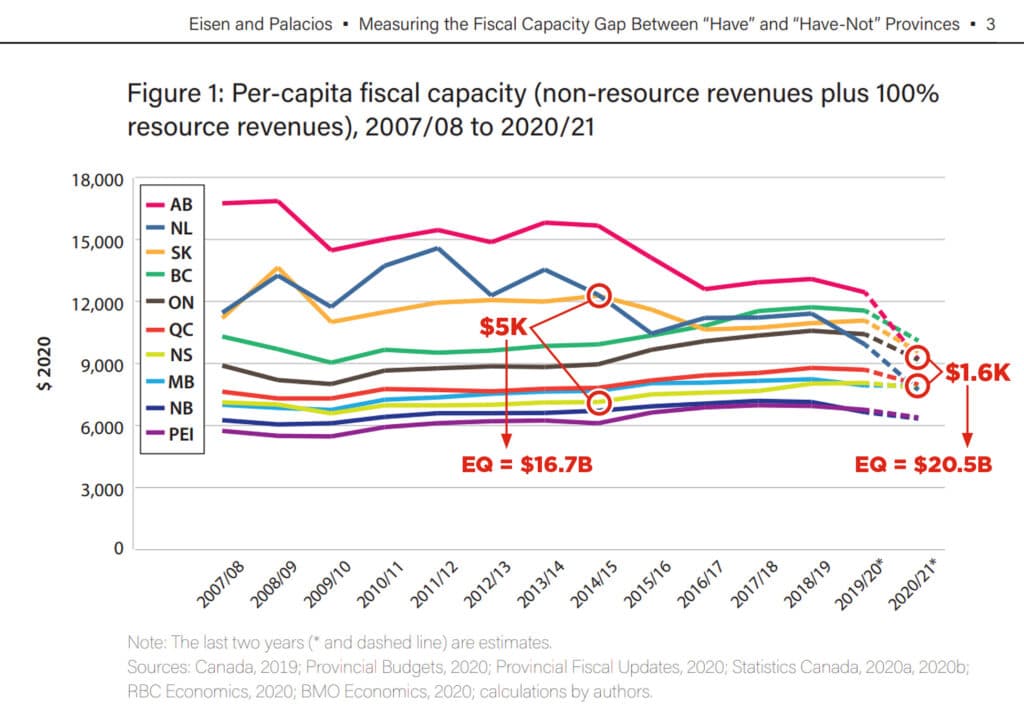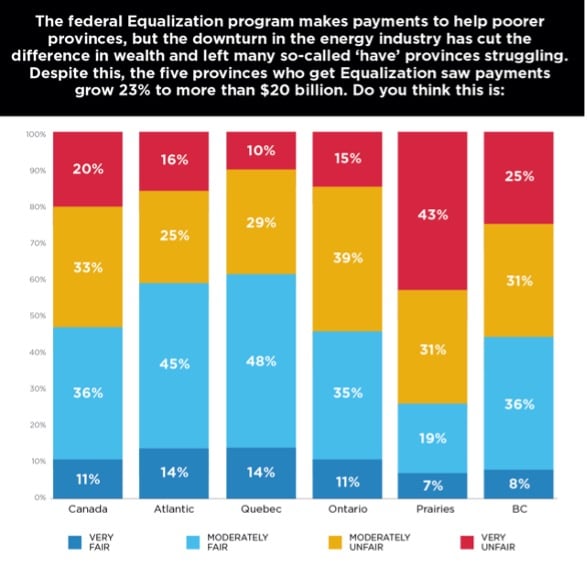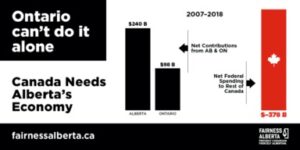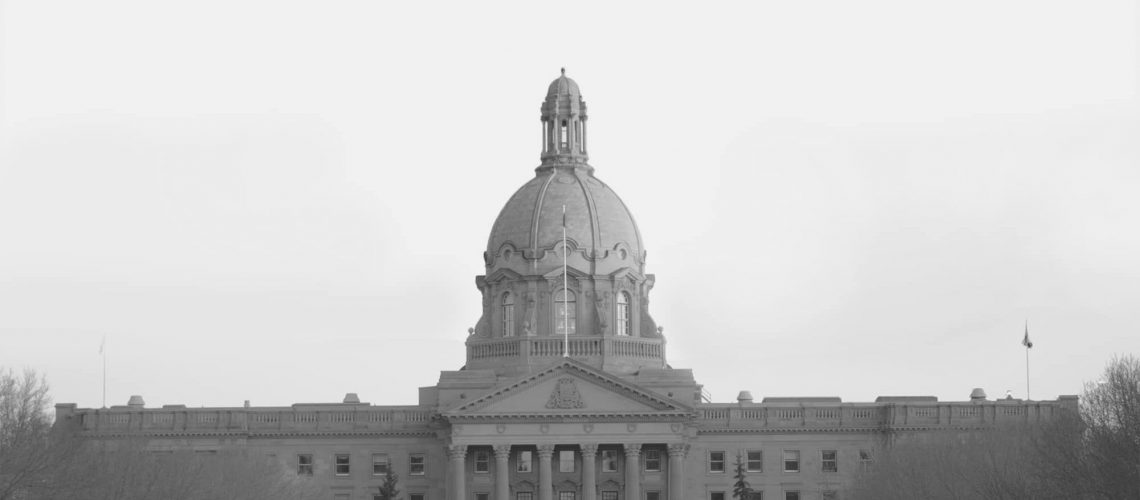EDMONTON, AB, March 5, 2021 (Embargoed Draft)– Today, Fairness Alberta released a poll showing 53% of Canadians, including 54% in Ontario and 56% in B.C., believe Equalization payments are too large given the narrowing wealth gap between provinces since 2015 and provincial struggles in the so-called ‘have’ provinces. In the prairies, where Alberta is having a fall referendum on Equalization, 74% thought the payments unfair.
The $20 billion-and-growing price tag for Equalization is totally unnecessary and unaffordable given how much more equal provinces have become since 2015,” said Fairness Alberta Executive Director Dr. Bill Bewick. “When you factor in higher costs in places like Toronto, Calgary, and Vancouver, it is unfair to take so much from them to fund other provinces’ budgets. Ontario, Newfoundland, and the West deserve a rebate while this is sorted out.”

A recent study by Ben Eisen and Milagros Palacios illustrates the “Great Convergence” in provincial fortunes since the 2015 energy downturn. While the gap between the median ‘have’ and ‘have not’ fell from $5000 per person in 2015 to only $1600 now, Equalization payments grew 23%. Tied to national GDP rather than need, a $20.5 billion windfall is going to 5 provinces with one-third of the population this year.
“The 67% of Canadians in the contributing provinces were struggling to pay for their own provincial services even before COVID-19,” said Dr. Bewick. “Given the collapse of the wealth gap between provinces, the so-called ‘have’ provinces should get the share of Equalization that came from their taxpayers rebated until we achieve meaningful reforms to federal funding.”
The poll, from a weighted survey of 1,000 Canadians conducted by the Toronto firm One Persuasion Inc. at the end of February (MoE +/-3.1%), showed a majority in Ontario and the West said it is unfair that Equalization payments rose 23% since 2015 while ‘have’ provinces struggled with economic losses and spending cuts.

Taxpayers in the non-recipient provinces pay a $14 billion share of the Equalization tab through their federal taxes, which this year saw $20.5 billion granted to the provincial governments of Quebec, Manitoba, New Brunswick, Nova Scotia, and P.E.I. A full rebate would be a boost of $8 billion to Ontario, $3 billion each to Alberta and B.C., and smaller cheques to Saskatchewan and Newfoundland.
As Dr. Bewick outlined this week in the National Post, even a 50% rebate would mean a bump to provincial budgets of $4 billion in Ontario and $1.5 billion being returned to B.C. and Alberta as their provincial responsibilities come under strain.
Fairness Alberta is a grassroots, non-partisan, and non-separatist association of concerned citizens, aiming to increase awareness across the country about Albertans’ disproportionate contributions to Canada, while also providing clear, factual information on unfair federal policies that will further undermine the prosperity of Alberta and other contributing provinces.
Fairness Alberta previously released analysis and recommendations for reforms to Equalization and the Fiscal Stabilization program, with an overview of fiscal federalism as well at fairnessalberta.ca.
Previous releases, interviews, columns, and presentations to the House of Commons Standing Committee on Finance can be found in the NEWS section of our website. For more information on Fairness Alberta, its mandate, and future plans, please visit our website at www.fairnessalberta.ca.
For further information or to arrange interviews, please contact:
Bill Bewick, Ph.D.
Executive Director
Fairness Alberta
Cell: (780) 996-6019
Email: [email protected]
Background – Fall billboard and online campaign in Ottawa and Toronto:
 Billboard Calculations: StatsCan Table: 36-10-0450-01 (formerly CANSIM 384-0047) shows that from 2007-2018 Albertans paid $240 billion more in federal taxes than the federal government spent back in Alberta. For Ontario the net contribution (positive balance) was $98 billion. The rest of Canada (including net contributors BC and Saskatchewan) had a net negative balance of $378 billion from 2007-2017.
Billboard Calculations: StatsCan Table: 36-10-0450-01 (formerly CANSIM 384-0047) shows that from 2007-2018 Albertans paid $240 billion more in federal taxes than the federal government spent back in Alberta. For Ontario the net contribution (positive balance) was $98 billion. The rest of Canada (including net contributors BC and Saskatchewan) had a net negative balance of $378 billion from 2007-2017.
